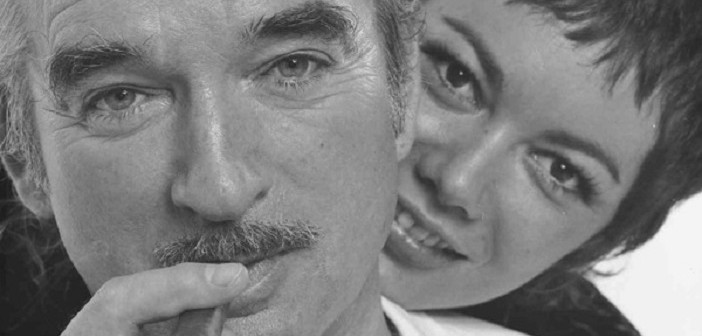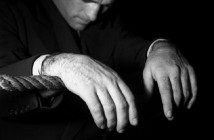Back in the Fifties, a young Quincy Jones was barnstorming his star studded big band around Cold War Europe on a dime and a dream and ran out of gas in Paris. The band broke up and he was was offered a deal to sign on as musical director of an upstart record company owned by a slick, cigar smoking Frenchman with the American-sounding name of Eddie Barclay.
With his label, Barclay Records, Eddie went on to dominate the French music business for nearly half a century. He recorded the likes of Charles Aznavour and Jacques Brel, (also photographed by Georges Dambier) and brought what was high tech for the time — 45 and 33 rpm technology — to France. He was a promoter and a visionary, distributing albums by black American stars including Duke Ellington, Dizzy Gillespie and Ray Charles. Fellow French entertainment moguls thought he was crazy when he did a deal with Mercury Records to promote the Platters in Europe, but he sold 1.5 million copies of the hit single “Only You.”
Born Edouard Ruault, Barclay came from a hard working family. His parents owned a café and it was a popular one. The Café de la Poste near theGare de Lyon, the cavernous train station where most everybody who was anybody arriving from Nice, Marseilles and Lyon hit town. The joint was the social equivalent of a New Yorker coming into Grand Central and telling friends to meet up at The Oyster Bar, except the oysters were better.
Eddie went to school and waited tables part-time. Then his parents let him quit school to study piano, and he got good enough to play the top clubs in Paris, backing up the likes of Louis Armstrong and Ella Fitzgerald on the eve of World War 2. He would head over to the Croix du Sud (Southern Cross) after hours to hear Django Reinhardt and Stéphane Grapelli jam through the night. And with the Nazi-era ban on jazz music, he became part of a clique that supported secret clubs and radio stations.
Eddie changed his name to Barclay after U.S. troops occupied Paris. And he encouraged his first wife, singer Nicole Vandenbussche, to do same and she became Eve Williams. One of his best friends, the legendary poet, songster and mystery writer Boris Vian, followed suit, using the pseudonym Vernon Sullivan. Eddie also helped launch Jazzmagazine, the French version of DownBeat, and Vian served as its editor.
Barclay was to the French music industry what Ahmet Ertegun, Jerry Wexler and David Geffen have been to American entertainment, and then some. He knew music, he knew talent, and he knew show business. Back in 1956 he even convinced his shy friend, actress Brigitte Bardot, to cut a vocal album.
Toward the end of his career he sold most of his company to Polygram and spent most of his time hanging out and partying at his Playboy mansion-style digs in Saint-Tropez, where his friend Bardot urged him to build his palace. He was married nine times. But left only one son behind when he died in 1994. Nobody has ever replaced him.




